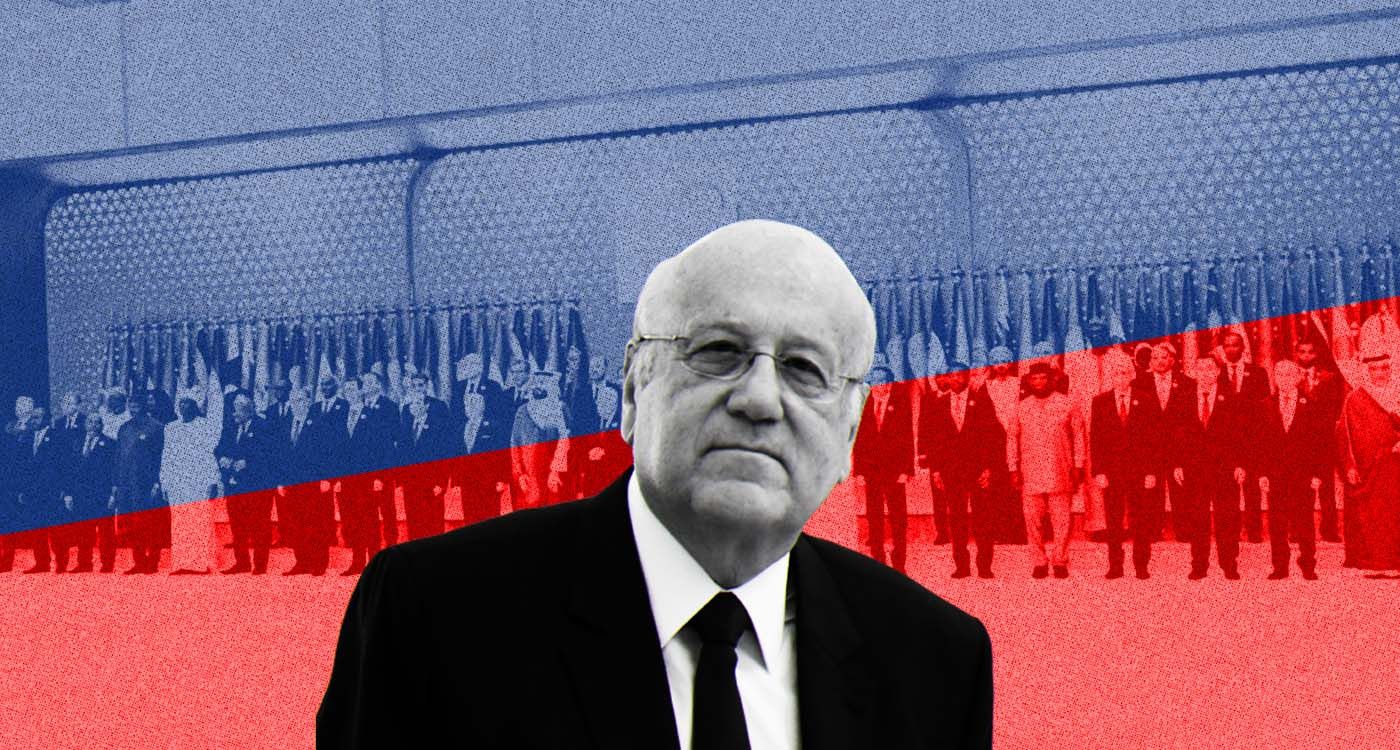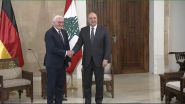
Expected in Riyadh on Sunday to participate in the Arab-Islamic summit scheduled for November 11, caretaker Prime Minister Najib Mikati plans to arrive with strong political backing. His main challenge will be to present himself before the Arab community not only as Leban exon’s executive leader, but also as a national and, importantly, Sunni figurehead. The goal? To prepare for the post-war phase and position himself as a potential "candidate" to lead a prospective new government.
Ahead of his visit to Saudi Arabia, Mikati took an initiative some political figures view as having sectarian undertones. After a meeting on Thursday at the Grand Serail with the Mufti of the Republic, Sheikh Abdel Latif Derian, the prime minister called for a broader meeting on Friday with the country’s 27 Sunni MPs.
While most responded affirmatively, three declined for various reasons. MP Imad el-Hout cited an overseas trip, while MPs Halime el-Kaakour and Oussama Saad refused to attend a meeting of a sectarian nature. “With 24 MPs gathered under the auspices of the caretaker prime minister, one can only acknowledge Mikati’s success in achieving his goal to rally the Sunni community in Lebanon,” suggested a source close to the matter, speaking anonymously.
This gathering was further bolstered by support from a large portion of Christian political factions. It should be noted that, last Wednesday, two former presidents, Amine Gemayel and Michel Sleiman, along with former Prime Minister Fouad Siniora, visited Mikati to present a joint report on the current situation and congratulate him on his recent actions. They praised his resistance to Iranian interference (notably through his recent stances) and his affirmation of Lebanese sovereignty. On October 18, Mikati had instructed the caretaker Foreign Minister, Abdallah Bou Habib, to summon the Iranian chargé d’affaires to relay Lebanon’s protests. This controversy arose following comments by Iranian Parliament Speaker Mohammad Ghalibaf in an interview with Le Figaro. Among other statements, Ghalibaf had suggested that Tehran was prepared to negotiate a ceasefire in Lebanon with Paris. This led to accusations, particularly by Mikati, of Iran interfering in Lebanon’s internal affairs and attempting to establish control over the country.
Set against a particularly tense and complex political backdrop, the "Sunni-to-Sunni" meeting was held discreetly, away from the media. While it might spark high expectations, it also risks having significant repercussions on Lebanon's political balance. Regarding its connection to the aforementioned Arab-Islamic summit, opinions are divided. Some observers argue that the two matters are unrelated, while others speculate that this meeting might not have been held if not for the upcoming summit.
For Mikati, three critical imperatives are at stake, benefiting from the “absence” and regional “boycott” imposed on his predecessor, Saad Hariri: becoming the ultimate reference within the Sunni community (despite lacking a parliamentary bloc), assuming the post-war mission, and establishing himself alongside Speaker of Parliament Nabih Berri as a national authority capable of unifying ranks.
In other words, the meeting he convened with Sunni MPs aims to strengthen unity within the community, particularly in light of the uncertainty surrounding Saad Hariri’s succession and the internal division that has persisted since Hariri’s withdrawal from political life. Mikati likely intends to bring together various Sunni factions around a common platform, capable of contributing to the country's governance while safeguarding the community’s interests. This appears crucial for him, not only to secure political power but also to ensure Sunni representation in Lebanese institutions.
Furthermore, Mikati might leverage this gathering to solidify his role as a mediator and political leader, especially given that his interim mandate is perceived by some, considering the current climate, as a temporary or even fragile arrangement.
In this regard, it is worth noting that the caretaker prime minister has played a vital role in managing Lebanon's government crisis, even as the cabinet remains partially functional and political tensions persist. Although he has so far avoided fully engaging in the struggle for Sunni leadership, could his position as the caretaker prime minister, with broad popular support, grant him a central role in stabilizing the country?




Comments